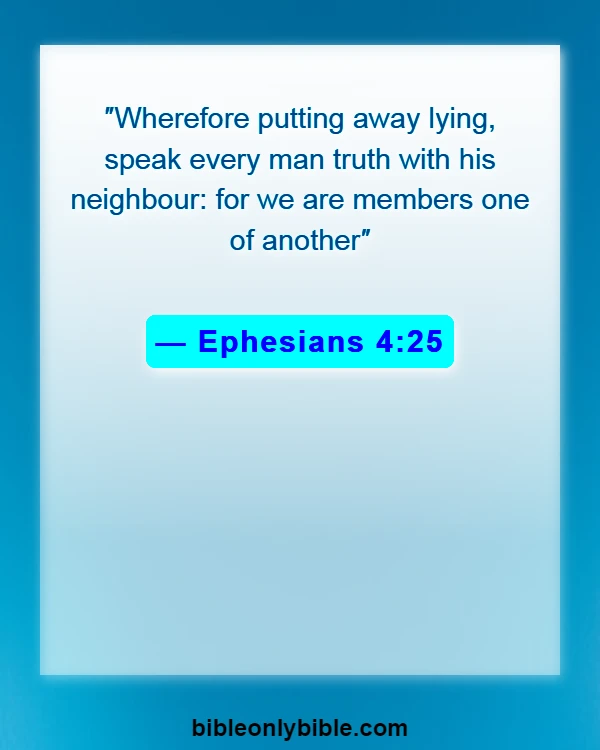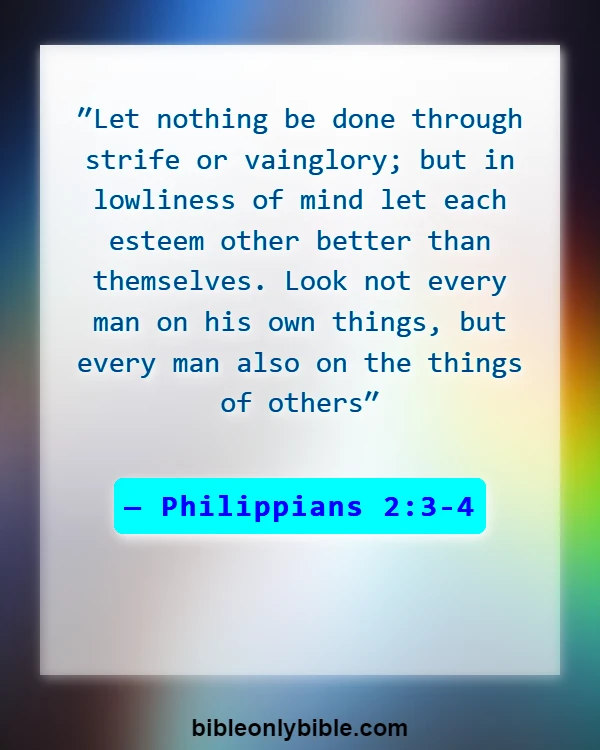Friends, if you’re searching for “Bible Verses About Morality And Ethics,” this content is for you. Today, I share Bible verses that can really help you better understand morality and ethics according to the Bible. These scriptures offer guidance on righteous living, ethical decision-making, and godly conduct. They provide insight into how we should treat others, make choices, and live our lives in alignment with God’s principles. Let’s explore what the Word says about moral and ethical behavior.
Contents
- 1 What Does the Bible Say About Moral Character and Living Righteously?
- 1.1 Proverbs 11:3 – Integrity guides; dishonesty leads to destruction
- 1.2 Micah 6:8 – Act justly, love mercy, walk humbly with God
- 1.3 Matthew 5:6 – Blessed are those who seek righteousness
- 1.4 1 Timothy 6:11 – Pursue righteousness, godliness, faith, love, endurance, gentleness
- 1.5 Titus 2:12 – Live self-controlled, upright, godly lives
- 2 Biblical Principles for Making Ethical Decisions in Daily Life
- 2.1 Proverbs 3:5-6 – Trust God, acknowledge Him; He guides paths
- 2.2 James 1:5 – Seek God’s wisdom for ethical decision-making
- 2.3 Philippians 4:8 – Focus on what is true, noble, right, pure
- 2.4 Romans 12:2 – Transform by renewing mind for God’s will
- 2.5 Colossians 3:17 – Do all in Jesus’ name, giving thanks to God
- 2.6 Psalm 25:4-5 – Guidance and truth from God for righteous living
- 3 Scripture Verses About Honesty, Integrity, and Truthfulness
- 3.1 Proverbs 12:22 – The Lord detests lying, delights in truthfulness
- 3.2 Ephesians 4:25 – Speak truthfully, be honest with your neighbor
- 3.3 Colossians 3:9 – Do not lie; live truthfully with each other
- 3.4 Proverbs 19:1 – Honest poverty better than deceitful wealth
- 3.5 Psalm 15:2 – Walks blamelessly, practices righteousness, speaks truth
- 4 Bible Teachings on Love, Compassion, and Treating Others Well
- 4.1 1 Corinthians 13:4-7 – Love is patient, kind, and enduring
- 4.2 Galatians 6:2 – Bear burdens, fulfill Christ’s law of love
- 4.3 John 13:34 – Love one another as Jesus loves you
- 4.4 Ephesians 4:32 – Be kind, compassionate, and forgiving to one another
- 4.5 Romans 12:10 – “Love and honor one another with devotion.”
- 4.6 1 Peter 4:8 – Love deeply; it covers many sins
- 4.7 Colossians 3:12 – Clothe yourself with compassion, kindness, humility, gentleness, patience
- 5 What the Bible Says About Justice, Fairness, and Social Responsibility
- 5.1 Isaiah 1:17 – Learn justice, defend the oppressed, seek fairness
- 5.2 Proverbs 21:15 – Justice brings joy to the righteous
- 5.3 Zechariah 7:9 – Practice justice, show mercy, and compassion
- 5.4 Amos 5:24 – Let justice and righteousness flow continuously
- 5.5 Psalm 82:3 – Defend the weak, uphold justice for the oppressed
- 6 Biblical Guidelines for Sexual Morality and Purity
- 6.1 1 Thessalonians 4:3-5 – God’s will: sanctification, abstain from sexual immorality
- 6.2 1 Corinthians 6:18-20 – Honor God with your body; avoid sexual immorality
- 6.3 Hebrews 13:4 – Honor marriage; avoid sexual immorality and adultery
- 6.4 Ephesians 5:3 – Avoid sexual immorality, impurity, or greed
- 6.5 Matthew 5:28 – Lustful thoughts equate to adultery in the heart
- 6.6 Proverbs 6:32 – Adultery lacks sense and destroys one’s soul
- 7 Scripture About Forgiveness, Mercy, and Moral Restoration
- 8 How to Apply Biblical Ethics in Modern Workplace and Relationships
- 8.1 Colossians 3:23-24 – Work heartily for the Lord, receive inheritance reward
- 8.2 1 Corinthians 10:31 – Do all for God’s glory in every action
- 8.3 Philippians 2:3-4 – Value others above self, act selflessly and humbly
- 8.4 Ephesians 4:29 – Speak words that uplift and benefit others
- 8.5 Proverbs 27:17 – Mutual growth through supportive relationships
- 8.6 Romans 12:18 – Live peaceably with all, as much as possible
What Does the Bible Say About Moral Character and Living Righteously?
Living a life of moral character involves striving to align our actions with the values that reflect our faith. It means making choices that honor God and show respect to others. This journey may not be easy, but it’s deeply rewarding. When we prioritize righteousness, we find peace and fulfillment that goes beyond our understanding. Let’s explore some Bible verses that guide us in developing a righteous character.
Proverbs 11:3 – Integrity guides; dishonesty leads to destruction

The integrity of the upright shall guide them: but the perverseness of transgressors shall destroy them
Proverbs 11:3
Explanation:- This Bible verse highlights the importance of integrity in guiding one’s life, suggesting that moral character leads to righteous living. In contrast, dishonesty ultimately results in downfall. It emphasizes that a life led by truth and honesty ensures stability and righteousness.
Micah 6:8 – Act justly, love mercy, walk humbly with God

He hath shewed thee, O man, what is good; what doth the Lord require of thee, but to do justly, to love mercy, to walk humbly with thy God?
Micah 6:8
Explanation:- This verse highlights the essence of moral character by urging us to pursue justice, embrace compassion, and maintain humility in our relationship with God. It calls for a life where ethical actions, mercy, and a humble walk with God define our righteousness.
Matthew 5:6 – Blessed are those who seek righteousness

Blessed are they which do hunger thirst after righteousness: for they shall be filled
Matthew 5:6
Explanation:- This verse highlights the virtue of desiring righteousness as a path to true fulfillment. It underscores the importance of cultivating moral character and living ethically. Those who earnestly seek justice and goodness are promised deep satisfaction and spiritual nourishment.
1 Timothy 6:11 – Pursue righteousness, godliness, faith, love, endurance, gentleness

But thou, O man of God, flee these things; follow after righteousness, godliness, faith, love, patience, meekness
1 Timothy 6:11
Explanation:- This verse encourages believers to embody moral virtues by actively pursuing righteousness, godliness, faith, love, endurance, and gentleness. It highlights the importance of developing a strong moral character and living a life that reflects ethical principles and a commitment to spiritual growth.
Titus 2:12 – Live self-controlled, upright, godly lives

Teaching us that, denying ungodliness worldly lusts, we should live soberly, righteously, godly, in this present world
Titus 2:12
Explanation:- Titus 2:12 encourages us to embrace self-control and righteousness, guiding us to live in a manner that reflects godliness. It highlights the importance of rejecting worldly desires and choosing a life that exemplifies moral integrity and ethical behavior in alignment with our faith.
Biblical Principles for Making Ethical Decisions in Daily Life
Every day, we face decisions that test our moral compass. The Bible offers timeless principles to help us navigate these choices. It’s about seeking wisdom, practicing discernment, and always considering the impact of our actions on others. As we make decisions, let’s remember that our choices can reflect God’s love and justice in the world around us.
Proverbs 3:5-6 – Trust God, acknowledge Him; He guides paths

Trust in the Lord with all thine heart; lean not unto thine own understandingIn all thy ways acknowledge him, he shall direct thy paths
Proverbs 3:5-6
Explanation:- Trusting in God’s wisdom rather than solely relying on personal understanding is key to ethical decision-making. By acknowledging Him in every aspect of life, He provides guidance and clarity, ensuring a righteous and moral path. This encourages reliance on divine insight for daily choices.
James 1:5 – Seek God’s wisdom for ethical decision-making

If any of you lack wisdom, let him ask of God, that giveth to all men liberally, upbraideth not; it shall be given him
James 1:5
Explanation:- When facing ethical decisions, seek divine wisdom. This guidance helps you navigate moral complexities with clarity and righteousness. By asking God for insight, you align your choices with His will, fostering integrity and ethical behavior in daily life.
Philippians 4:8 – Focus on what is true, noble, right, pure

Finally, brethren, whatsoever things are true, whatsoever things are honest, whatsoever things are just, whatsoever things are pure, whatsoever things are lovely, whatsoever things are of good report; if there be any virtue, if there be any praise, think on these things
Philippians 4:8
Explanation:- Philippians 4:8 encourages us to center our thoughts on virtues such as truth, nobility, righteousness, and purity. By focusing on these principles, we are guided to make ethical decisions in daily life, fostering a moral framework that aligns with biblical teachings.
Romans 12:2 – Transform by renewing mind for God’s will

Be not conformed to this world: but be ye transformed by the renewing of your mind, that ye may prove what is that good, acceptable, perfect, will of God
Romans 12:2
Explanation:- Transforming your mind to align with God’s will involves rejecting worldly influences and embracing a renewed way of thinking. This process helps discern ethical decisions in daily life, guided by divine principles rather than societal norms, ultimately leading to a more fulfilling and morally sound existence.
Colossians 3:17 – Do all in Jesus’ name, giving thanks to God

Whatsoever ye do in word or deed, do all in the name of the Lord Jesus, giving thanks to God the Father by him
Colossians 3:17
Explanation:- This verse encourages integrating faith into every action and decision. By doing everything in Jesus’ name, it guides believers to uphold moral and ethical standards, ensuring their actions align with Christian values. Gratitude to God reinforces a humble and thankful attitude in daily life.
Psalm 25:4-5 – Guidance and truth from God for righteous living

Shew me thy ways, O Lord ; teach me thy pathsLead me in thy truth, teach me: for thou art the God of my salvation; on thee do I wait all the day
Psalm 25:4-5
Explanation:- This passage emphasizes seeking divine guidance and truth for making ethical decisions. It underscores the importance of relying on God’s wisdom and teachings to navigate daily life with integrity and righteousness, helping us align our actions with moral principles.
Scripture Verses About Honesty, Integrity, and Truthfulness
Honesty and integrity are foundational virtues in our walk with God. Being truthful in our words and actions builds trust and strengthens our relationships. While it might be tempting to take shortcuts, staying true to our values is always worth it. Let’s commit to living with transparency and sincerity, as we reflect on these scriptures.
Proverbs 12:22 – The Lord detests lying, delights in truthfulness

Lying lips are abomination to the Lord : but they that deal truly are his delight
Proverbs 12:22
Explanation:- This verse underscores the importance of honesty and integrity, highlighting that deceit is abhorrent to God, while truthfulness brings Him joy. It serves as a moral guideline, encouraging individuals to embrace honesty in their actions and interactions, aligning their lives with divine principles.
Ephesians 4:25 – Speak truthfully, be honest with your neighbor

Wherefore putting away lying, speak every man truth with his neighbour: for we are members one of another
Ephesians 4:25
Explanation:- This verse encourages living with honesty and integrity by emphasizing the importance of speaking truthfully to one another. It highlights how truth fosters unity and trust within the community, urging us to value transparency and sincerity in our interactions with others.
Colossians 3:9 – Do not lie; live truthfully with each other

Lie not one to another, seeing that ye have put off the old man with his deeds
Colossians 3:9
Explanation:- This verse emphasizes the importance of honesty and integrity in relationships. By choosing to live truthfully, we foster trust and strengthen our connections with others. It calls us to reject deceit and embrace transparency, reflecting a commitment to ethical and moral living.
Proverbs 19:1 – Honest poverty better than deceitful wealth

Better is the poor that walketh in his integrity, than he that is perverse in his lips, is a fool
Proverbs 19:1
Explanation:- This verse highlights the value of integrity over material wealth. It teaches that living honestly, even in poverty, is more honorable than gaining riches through deceit. True worth is found in truthfulness and integrity, not in the accumulation of dishonest wealth.
Psalm 15:2 – Walks blamelessly, practices righteousness, speaks truth

He that walketh uprightly, worketh righteousness, speaketh the truth in his heart
Psalm 15:2
Explanation:- This verse highlights the importance of living a life of integrity. It calls for blameless conduct, the practice of righteousness, and speaking truthfully. These principles form the foundation of moral and ethical behavior, guiding us to live honestly and authentically in alignment with God’s will.
Bible Teachings on Love, Compassion, and Treating Others Well
At the heart of Christian living is the call to love and show compassion to everyone around us. It’s about seeing others through God’s eyes and caring for them as Jesus does. This love transforms not only those we touch but also deepens our own spiritual journey. Let’s embrace these teachings and let love guide our actions.
1 Corinthians 13:4-7 – Love is patient, kind, and enduring

Charity suffereth long, is kind; charity envieth not; charity vaunteth not itself, is not puffed upDoth not behave itself unseemly, seeketh not her own, is not easily provoked, thinketh no evilRejoiceth not in iniquity, but rejoiceth in the truthBeareth all things, believeth all things, hopeth all things, endureth all things
1 Corinthians 13:4-7
Explanation:- This passage highlights the essence of love as patient, kind, and unwavering. It teaches that true love embodies compassion, humility, and resilience, encouraging us to treat others with empathy and understanding, forming the foundation of moral and ethical behavior in relationships.
Galatians 6:2 – Bear burdens, fulfill Christ’s law of love

Bear ye one another’s burdens, so fulfil the law of Christ
Galatians 6:2
Explanation:- This verse encourages believers to support one another in times of need, embodying love and compassion. By helping others carry their burdens, we fulfill the law of Christ, which is rooted in selfless love and ethical treatment of others, reflecting true Christian morality.
John 13:34 – Love one another as Jesus loves you

A new commandment I give unto you, That ye love one another; as I have loved you, that ye also love one another
John 13:34
Explanation:- The verse calls for us to love others with the same selfless, unconditional love that Jesus shows us. It highlights the importance of compassion and kindness in our interactions, urging us to treat others with the care and respect that Jesus exemplifies.
Ephesians 4:32 – Be kind, compassionate, and forgiving to one another

Be ye kind one to another, tenderhearted, forgiving one another, even as God for Christ’s sake hath forgiven you
Ephesians 4:32
Explanation:- This verse encourages us to embody kindness, compassion, and forgiveness in our interactions. It highlights the importance of treating others with love and empathy, reflecting the grace and forgiveness we receive, thus fostering harmonious and ethical relationships in accordance with biblical teachings.
Romans 12:10 – “Love and honor one another with devotion.”

Be kindly affectioned one to another with brotherly love; in honour preferring one another
Romans 12:10
Explanation:- This verse highlights the importance of love and respect in relationships, urging us to prioritize others’ needs and show genuine care. It encourages fostering a community where compassion and honor are central, reflecting the essence of moral and ethical living through selfless devotion.
1 Peter 4:8 – Love deeply; it covers many sins

Above all things have fervent charity among yourselves: for charity shall cover the multitude of sins
1 Peter 4:8
Explanation:- This verse highlights the transformative power of love in human relationships. By loving deeply and sincerely, we can foster compassion and forgiveness, leading to harmony and understanding. Love becomes a guiding principle that helps navigate moral and ethical challenges, covering and healing many wrongs.
Colossians 3:12 – Clothe yourself with compassion, kindness, humility, gentleness, patience

Put on therefore, as the elect of God, holy beloved, bowels of mercies, kindness, humbleness of mind, meekness, longsuffering
Colossians 3:12
Explanation:- This verse encourages believers to embody virtues that reflect Christ’s love. By cultivating compassion, kindness, humility, gentleness, and patience, individuals can foster harmonious relationships and exemplify moral and ethical living. These qualities help create a community rooted in empathy and understanding.
What the Bible Says About Justice, Fairness, and Social Responsibility
Justice and fairness are central themes in the Bible, calling us to stand up for what is right and to advocate for the oppressed. As believers, we have a responsibility to work towards a just society that reflects God’s kingdom. By actively seeking fairness in our interactions, we can make a positive impact and bring hope to those who need it most.
Isaiah 1:17 – Learn justice, defend the oppressed, seek fairness

Learn to do well; seek judgment, relieve the oppressed, judge the fatherless, plead for the widow
Isaiah 1:17
Explanation:- This verse calls for active engagement in justice, fairness, and the defense of the oppressed. It encourages individuals to pursue ethical living by advocating for those in need and ensuring that moral principles guide their actions and decisions in society.
Proverbs 21:15 – Justice brings joy to the righteous

It is joy to the just to do judgment: but destruction shall be to the workers of iniquity
Proverbs 21:15
Explanation:- Justice is a source of joy for those who live righteously, affirming the importance of fairness and social responsibility. It highlights the ethical principle that true happiness and moral integrity are intertwined with upholding justice in society.
Zechariah 7:9 – Practice justice, show mercy, and compassion

Thus speaketh the Lord of hosts, saying, Execute true judgment, shew mercy compassions every man to his brother
Zechariah 7:9
Explanation:- This verse calls for practicing justice, showing mercy, and demonstrating compassion, highlighting the importance of ethical living. It encourages fairness and social responsibility, urging individuals to treat others with kindness and equity, thereby fostering a just and compassionate society.
Amos 5:24 – Let justice and righteousness flow continuously
But let judgment run down as waters, righteousness as a mighty stream
Amos 5:24
Explanation:- Amos 5:24 calls for a society where justice and righteousness are as ever-present and unceasing as a flowing river. It urges us to uphold fairness and social responsibility, ensuring that ethical principles guide our actions and decisions in all aspects of life.
Psalm 82:3 – Defend the weak, uphold justice for the oppressed

Defend the poor fatherless: do justice to the afflicted needy
Psalm 82:3
Explanation:- This verse calls for defending the vulnerable and ensuring justice for those who are oppressed. It highlights the importance of moral responsibility, urging us to act with fairness and compassion, reflecting God’s desire for a just and equitable society.
Biblical Guidelines for Sexual Morality and Purity
The Bible provides clear guidance on maintaining purity and honoring God with our bodies. It’s about recognizing the sacredness of our relationships and making choices that reflect God’s design for love and intimacy. By following these guidelines, we build strong, healthy connections that honor God and ourselves.
1 Thessalonians 4:3-5 – God’s will: sanctification, abstain from sexual immorality
For this is the will of God, even your sanctification, that ye should abstain from fornicationThat every one of you should know how to possess his vessel in sanctification honourNot in the lust of concupiscence, even as the Gentiles which know not God
1 Thessalonians 4:3-5
Explanation:- This passage emphasizes God’s desire for our sanctification and instructs believers to abstain from sexual immorality. It calls for self-control and holiness, guiding us to live in a way that honors God and reflects moral integrity in our relationships.
1 Corinthians 6:18-20 – Honor God with your body; avoid sexual immorality
Flee fornication. Every sin that a man doeth is without the body; but he that committeth fornication sinneth against his own bodyWhat? know ye not that your body is the temple of the Holy Ghost which is in you, which ye have of God, ye are not your own?For ye are bought with a price: therefore glorify God in your body, in your spirit, which are God’s
1 Corinthians 6:18-20
Explanation:- This passage urges believers to flee sexual immorality, emphasizing the body as a temple of the Holy Spirit. It highlights the importance of honoring God with our bodies, reminding us that we were bought at a price and belong to God, guiding us towards purity.
Hebrews 13:4 – Honor marriage; avoid sexual immorality and adultery

Marriage is honourable in all, the bed undefiled: but whoremongers adulterers God will judge
Hebrews 13:4
Explanation:- This verse underscores the importance of honoring marriage and maintaining sexual purity. It calls for fidelity within marriage and warns against adultery and sexual immorality, emphasizing these as crucial aspects of living a moral and ethical life according to biblical principles.
Ephesians 5:3 – Avoid sexual immorality, impurity, or greed

But fornication, all uncleanness, or covetousness, let it not be once named among you, as becometh saints
Ephesians 5:3
Explanation:- This verse emphasizes the importance of maintaining moral integrity by steering clear of sexual immorality, impurity, and greed. It encourages believers to live in a way that reflects holiness and respect for themselves and others, demonstrating a commitment to ethical conduct.
Matthew 5:28 – Lustful thoughts equate to adultery in the heart

But I say unto you, That whosoever looketh on a woman to lust after her hath committed adultery with her already in his heart
Matthew 5:28
Explanation:- This verse teaches that harboring lustful thoughts is morally equivalent to committing adultery in one’s heart. It reminds believers that true purity requires not just avoiding physical acts of sin, but also maintaining a pure and disciplined mind.
Proverbs 6:32 – Adultery lacks sense and destroys one’s soul

But whoso committeth adultery with a woman lacketh understanding: he that doeth it destroyeth his own soul
Proverbs 6:32
Explanation:- This verse highlights the foolishness and self-destructive nature of adultery, emphasizing its deep impact on one’s spiritual and moral well-being. It serves as a warning against compromising sexual purity and underscores the importance of adhering to ethical and moral guidelines in relationships.
Scripture About Forgiveness, Mercy, and Moral Restoration
Forgiveness and mercy are at the core of our faith, offering a path to healing and restoration. When we extend grace to others, we reflect God’s boundless love and compassion. It’s not always easy, but embracing forgiveness transforms our hearts and relationships. Let’s consider these scriptures as we seek to live in harmony and peace.
Colossians 3:13 – Forgive as the Lord forgave you

Forbearing one another, forgiving one another, if any man have a quarrel against any: even as Christ forgave you, so also do ye
Colossians 3:13
Explanation:- This verse encourages believers to embody forgiveness, mirroring the divine forgiveness they have received. It underscores the moral imperative of mercy and grace, promoting restoration in relationships and communities. By forgiving others, we reflect God’s love and work towards ethical harmony.
Matthew 6:14-15 – Forgive others to receive God’s forgiveness

For if ye forgive men their trespasses, your heavenly Father will also forgive youBut if ye forgive not men their trespasses, neither will your Father forgive your trespasses
Matthew 6:14-15
Explanation:- Forgiving others is essential for receiving divine forgiveness. This teaching highlights the importance of mercy and moral restoration in our lives. By embracing forgiveness, we align ourselves with God’s compassionate nature, paving the way for spiritual growth and ethical living.
Luke 6:36 – Be merciful, as your Father is merciful

Be ye therefore merciful, as your Father also is merciful
Luke 6:36
Explanation:- This verse encourages us to embody the same compassion and forgiveness that God shows us. By practicing mercy, we contribute to moral restoration and reflect divine love in our interactions, fostering a more ethical and forgiving community.
Psalm 51:10 – Create a pure heart and renew steadfast spirit

Create in me a clean heart, O God; renew a right spirit within me
Psalm 51:10
Explanation:- This verse highlights the transformative power of divine forgiveness and the desire for moral renewal. It reflects a plea for inner purity and steadfastness, emphasizing the importance of seeking spiritual restoration and strength through God’s mercy, leading to a more ethical life.
How to Apply Biblical Ethics in Modern Workplace and Relationships
Applying biblical ethics in our workplaces and relationships means living out our faith in practical ways. It’s about being honest, respectful, and kind in all our interactions. By letting biblical principles guide us, we create environments of trust and collaboration. Let’s strive to be examples of integrity and love, making a difference wherever we are.
Colossians 3:23-24 – Work heartily for the Lord, receive inheritance reward

Whatsoever ye do, do it heartily, as to the Lord, not unto menKnowing that of the Lord ye shall receive the reward of the inheritance: for ye serve the Lord Christ
Colossians 3:23-24
Explanation:- This passage encourages putting genuine effort into work and relationships by serving as if for God, not just people. It emphasizes sincerity, diligence, and integrity, promising a divine reward. Applying these principles in the modern workplace fosters ethical behavior and meaningful connections.
1 Corinthians 10:31 – Do all for God’s glory in every action

Whether therefore ye eat, or drink, or whatsoever ye do, do all to the glory of God
1 Corinthians 10:31
Explanation:- This verse encourages us to ensure that every action, whether at work or in personal relationships, reflects God’s glory. By integrating biblical ethics into daily life, we honor God and promote a harmonious, moral, and ethical environment in all aspects of our lives.
Philippians 2:3-4 – Value others above self, act selflessly and humbly

Let nothing be done through strife or vainglory; but in lowliness of mind let each esteem other better than themselvesLook not every man on his own things, but every man also on the things of others
Philippians 2:3-4
Explanation:- This verse teaches us to prioritize humility and selflessness in our interactions. By valuing others and acting with empathy, we foster ethical relationships and a positive workplace culture, reflecting biblical principles in modern settings.
Ephesians 4:29 – Speak words that uplift and benefit others

Let no corrupt communication proceed out of your mouth, but that which is good to the use of edifying, that it may minister grace unto the hearers
Ephesians 4:29
Explanation:- This verse encourages using words that uplift and benefit others, highlighting the importance of positive communication in modern workplaces and relationships. By speaking kindly and constructively, we foster an ethical environment that reflects biblical principles and promotes mutual respect and understanding.
Proverbs 27:17 – Mutual growth through supportive relationships

Iron sharpeneth iron; so a man sharpeneth the countenance of his friend
Proverbs 27:17
Explanation:- Mutual growth and improvement arise through supportive relationships, as individuals refine each other’s character and skills. In modern workplaces and relationships, applying biblical ethics involves fostering environments where constructive feedback, collaboration, and encouragement lead to personal and collective advancement.
Romans 12:18 – Live peaceably with all, as much as possible

If it be possible, as much as lieth in you, live peaceably with all men
Romans 12:18
Explanation:- In today’s workplace and relationships, strive for peace and harmony by understanding others’ perspectives and addressing conflicts with empathy and respect. This approach encourages a positive environment, fostering collaboration and mutual respect, reflecting biblical principles in everyday interactions.
